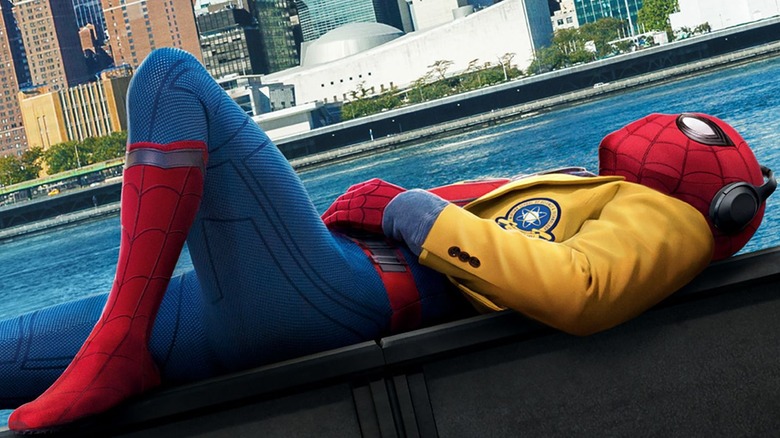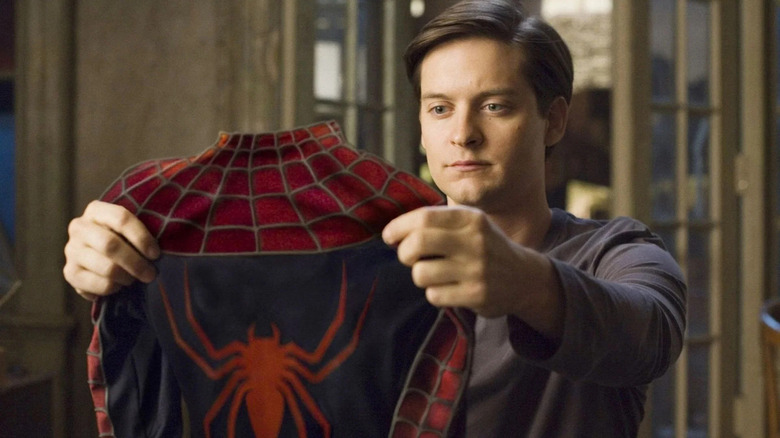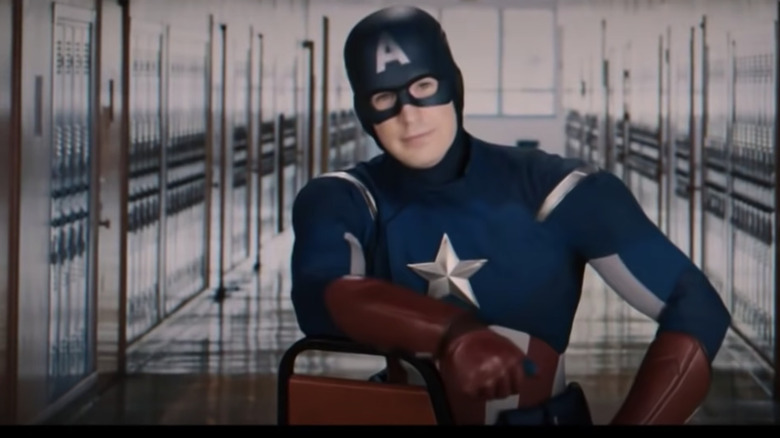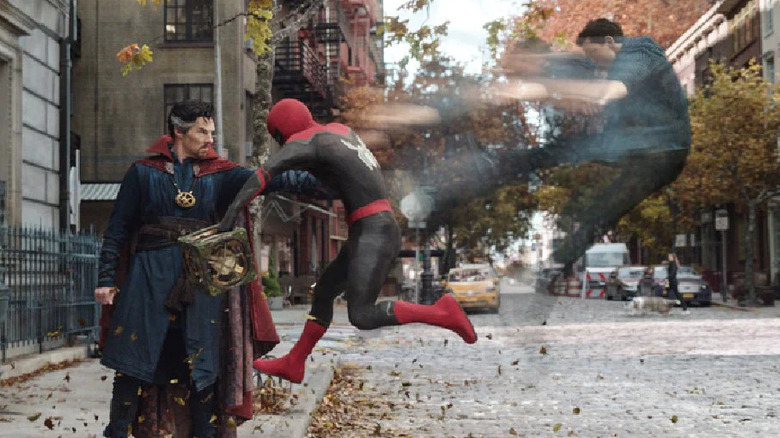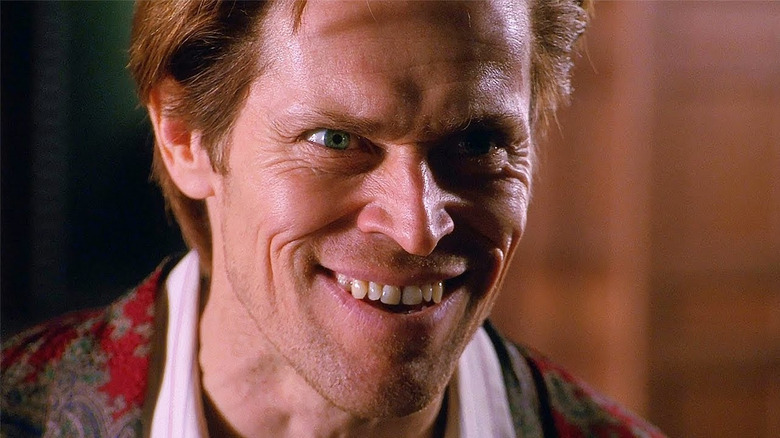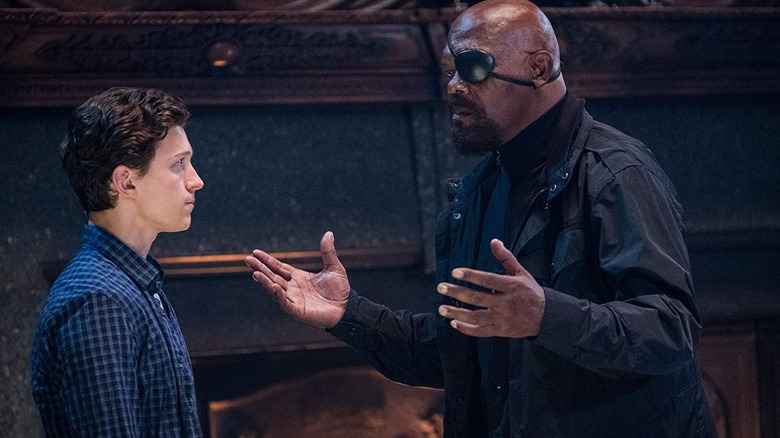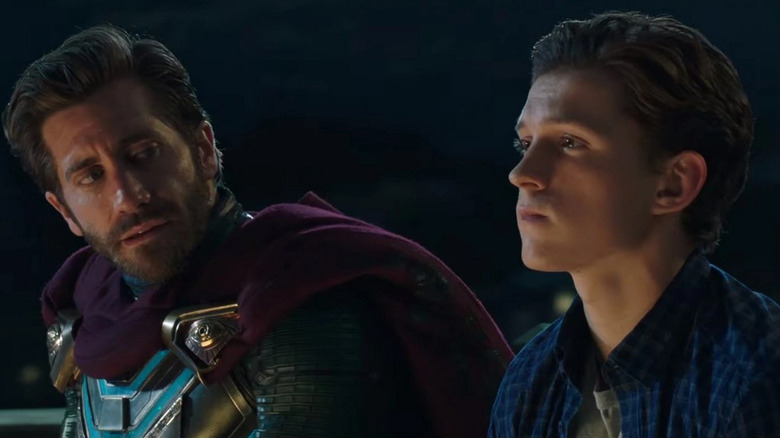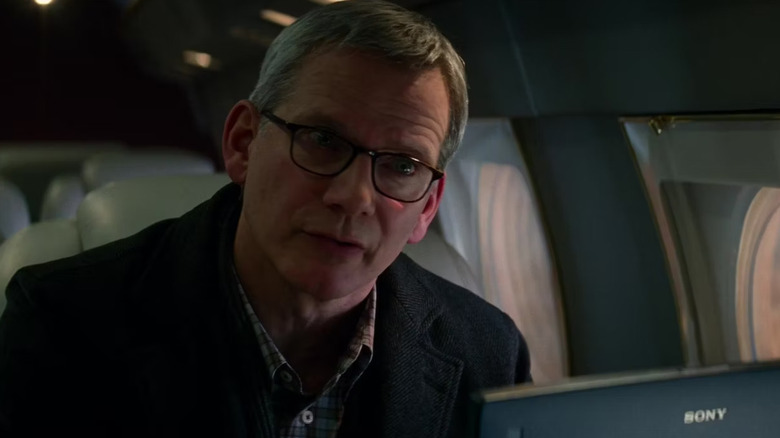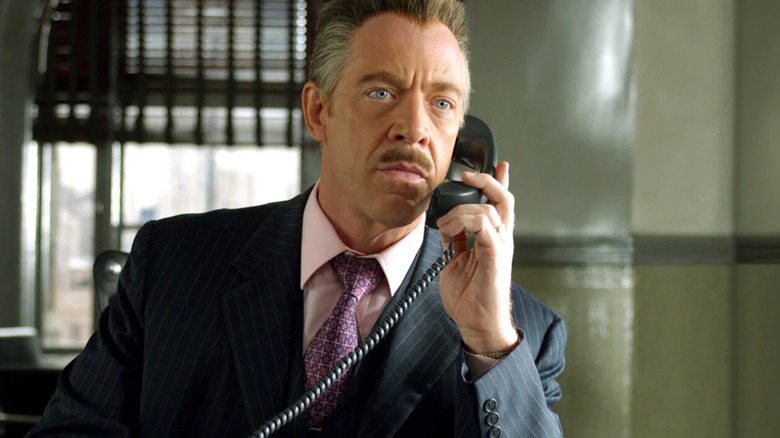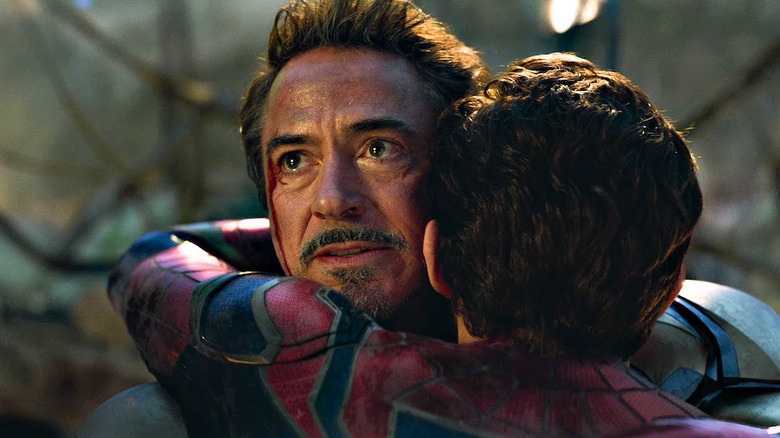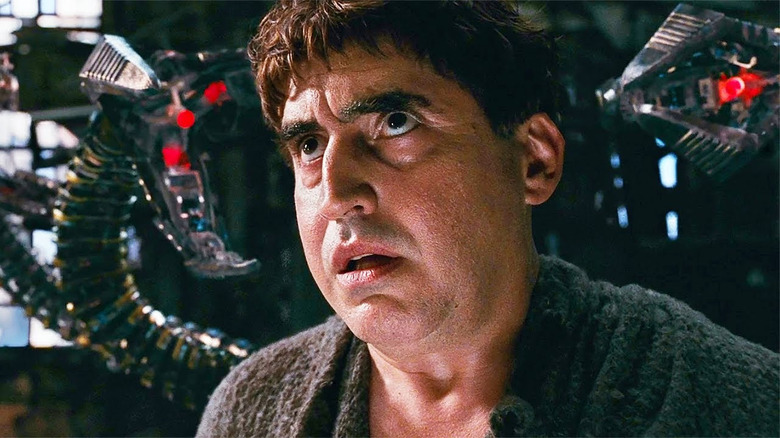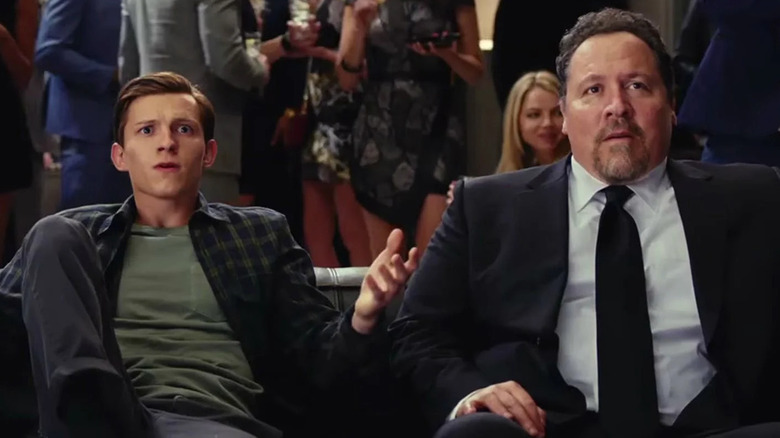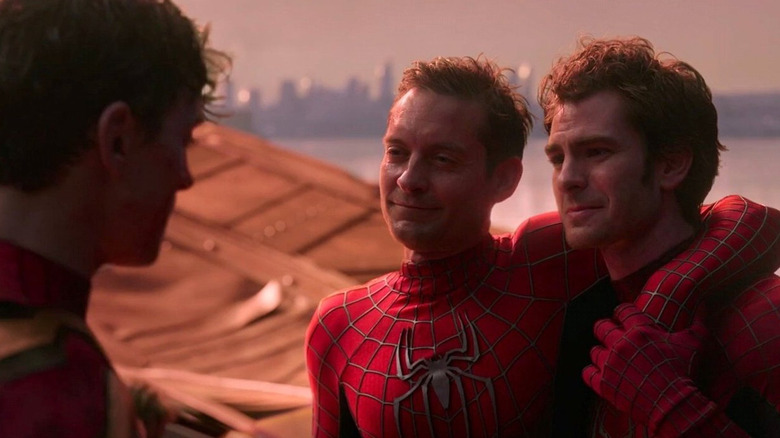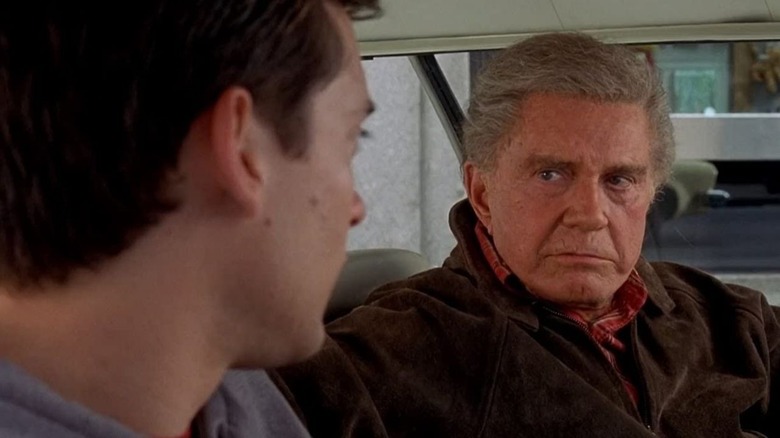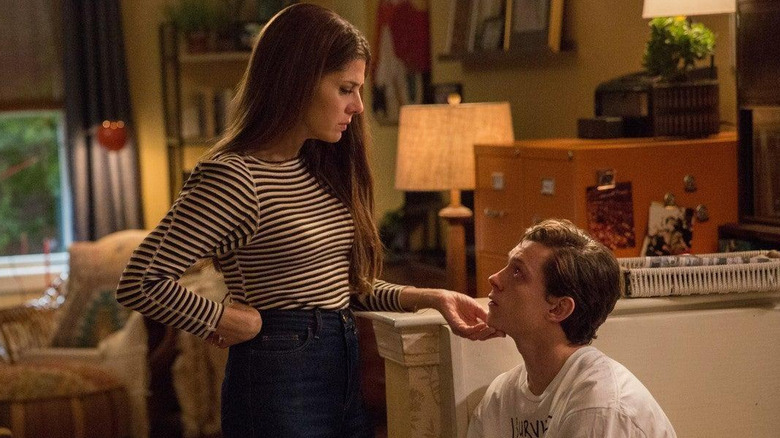With Great Power Comes Irresponsible Adults: Peter Parker's Mentors, Ranked
Letting superheroes run rampant is an all-around terrible idea, but as "Captain America: Civil War" went out of its way to prove, trying to reign them in would be even crazier. How dare we (i.e. civilians) demand accountability! If it's a choice between letting aliens destroy the planet or letting our heroes decimate a city or two, it's a no-brainer! These heroes gotta do what they're trained to for. So long as they're all powered up, trained and experienced, what's the trouble? It's not like anyone's giving a teenager a super suit and demanding they go save the multiverse. That would be crazy ...
Okay, okay, I'll cool it on the Peter Parker shade. It's objectively insane to entrust a teenager with that much power, and yet Spider-Man remains one of the easier heroes to get behind, with a sense of purpose that's both noble and sweet. Our friendly neighborhood Spider-Man is well accustomed to making difficult choices for the sake of helping others and compared to his Avenging colleagues, manages to get his job done with a bit less infrastructural damage. But even though Peter is uncommonly brave, strong-willed, and clever, he wasn't born the perfect hero.
Whether across the MCU or his many other iterations, Peter's journey has never been easy. We've watched him grow into the purposeful hero we know him to be. More often than not, this is attributed to the work of his many helpful mentors, as Peter is often guided along by crucial father figures and their quotable advice. But I'd levy the claim that it's a little more complicated than that — in fact, some cases see Peter developing his good skills in spite of the irresponsible adults welcoming him into the world of heroics.
Where there's great power, there's also bad advice
Peter Parker is young, impressionable and a fictional orphan — which means that every adult who shows him affection has the ability to leave a long-lasting impression that's bound to alter his philosophy for years to come. The problem? Adults are idiots. Take it from me, an (alleged) adult.
Influencing kids is dangerous enough in general, but a million times worse when said teenager also moonlights as a superhero. Worst of all, Peter's gaggle of mentors is a real mixed bag — ranging from wise uncles to billionaire playboys to absolute lunatics. Is it weird that a lot of the adults who influence his life also become villains who try to kill him? Perhaps. Will this have any sort of lingering psychological impact on him? Hopefully not. But I guess it could be worse. They could all end up dead instead. Oh, wait...
This list takes a look at the many adults who left an impression on any live-action Peter Parker's life, whether that be iconic words of wisdom or idiotic acts of f***ery. Expect to see lots of dunking on Avengers because let's be honest, they deserve it.
13. Captain America
Steve Rogers doesn't really count as a Spidey mentor, since he only knew Peter for a brief period of time — most of which they spent fighting on opposite sides of a very silly battle. They did have a very sweet "New York bros" bonding moment ... but then Cap punctuates the convo by dropping a jet bridge on the poor teen. Endangering the life of Peter Parker is a big no-no for all entries on this list, so I've decided to make an example of Cap.
Since Captain America is such a looming figure in the MCU's world — big enough to inspire a broadway musical, a shield added to the statue of liberty, and virginity speculation — he probably had a positive influence on our budding hero's life. When he returns from the great beyond, he teaches Peter that death is but an illusion! And when he rejects the Sokovia Accords, he taught him that governments are stupid. Plus, he does all those cool PSAs, offering important advice like "the only way to really be cool is to follow the rules." Huh. A little bit of a contradiction there, Cap.
All that confusing advice aside, Peter ends "No Way Home" by contemplating murder on Captain America's collapsed shield. He also attacks Norman Osborn in a way that's eerily reminiscent of Cap fighting Tony, so maybe he wasn't the best influence after all.
12. Doctor Strange
Doctor Strange sucks so hard that someone could probably write an entire article about it. Or multiple. This guy blows. I know we love Benedict Cumberbatch and the former Sorcerer Supreme has certainly had some fun moments, but watching him wreak havoc on Peter's life in "No Way Home" was my last straw. On one hand, Stephen Strange sort of meant well when he agreed to help Peter in the first place (though our wise friend Wong would disagree). And yes, wanting to send the villains back to their reality makes logical sense (even though it's morally abhorrent). But the madness is in his methods.
Doctor Strange fundamentally doesn't understand how to talk to teenagers. He spends half his time with Peter brushing off everything the kid cares about, getting annoyed whenever he brings up college, and ignoring his every contribution. He's like 17 years old! Take an interest in his interests, you jerk! And if Strange doesn't like the "let's be heroes and save their lives" plan, he should've made it into a conversation and tried to explain why instead of punching Peter into the astral realm. Anyway, the entirety of "No Way Home" was Strange's fault to begin with: isn't he supposed to be the greatest magician who ever lived or whatever?! He became this grand magic user in a fraction of the time that it takes most students and now holds the title of Sorcerer Supreme, but apparently, all it takes is one chatty teen to make all his magic melt away.
11. Norman Osborn
Speaking of folks who ruined Peter Parker's life, murdering someone's aunt is bad mentorship. Need I say more?
Okay, fine, I shall. As the Green Goblin, Norman Osborn (Willem Dafoe) is one of Peter's most formidable adversaries — and that doesn't just go for the Raimi movies. He eventually crosses over into the MCU where he full wrecks Peter's entire life. The man has a thing for targeting the people Peter loves and in some universes, that strategy happens to pay off. The results are tragic.
Weirdly, there's a very thin line between mentor and villain when it comes to the unfortunate life of Peter Parker. Norman certainly thinks he has a lot to offer the kid: consumed by his own darkness he's constantly pushing the same fate on our young hero, trying to "teach" him his perspective. Sure enough, the darkness threatens to overcome both Peter who encounter Osborn, but they always manage to persevere with sage advice from better mentors in their lives. But there are still a lot of important takeaways from this relationship. After all, Norman is the flip side of the power-responsibility coin: through him, Peter sees what happens when great power isn't reigned in by a sense of personal responsibility. Norman is fueled by ego and greed, which ultimately destroys him (before the multiverse rewrite). Facing off against Osborn always puts Peter's moral code to the test and ends up a defining moment for Spider-Man as a hero.
10. (Fake) Nick Fury
Welcome to It's Complicated section of the list! We're moving away from those that just plain sucked and into the mentors who actually had something of value to offer Peter, despite hitting a few bumps along the way. Endangering teenagers is a big hit against Nick Fury (aka Talos). Derailing Peter's vacation as part of an elaborate scheme to get him to Prague was mean, but bringing an entire class of children to a location he knew would be attacked by an Elemental was straight-up insane.
While I do appreciate that Talos' efforts were very in line with the core Peter Parker message of "great power" and "great responsibility," his methods were a little more than questionable. At this point, the poor kid is still recovering from the very traumatic events of "Endgame" and despite his adamant refusal, Talos still forces him to get involved in the mission. In his defense, the number of available Avengers is dwindling (I guess the wizard was too busy). He reminds Peter that he stepped up to become an Avenger, and that title comes with responsibilities that he shouldn't ignore. But once again, this is an example of yet another adult failing to communicate with Peter.
Instead of taking the time to help Peter learn this important lesson, Talos spends "Far From Home" berating him. It's absolutely maddening to watch him yell at Peter about the accidental drone strike instead of, I dunno, TAKING THE DANGEROUS WEAPON AWAY. Even though he had important stuff to say, Talos ends up flattening Peter's confidence before throwing him into a very dangerous situation. And need I remind you that all of this only happened because Talos failed to properly vet the rando in the fishbowl who was secretly controlling drones.
9. Mysterio
So this is awkward. But hear me out — before the whole ruining Peter's life by exposing his secret identity thing, Mysterio was just a kindly Jake Gyllenhaal who admired Peter's passion and bolstered his confidence. Upon meeting Peter in "Far From Home," Quentin Beck is quick to encourage him, compliment him, and even uses humor to break the tension and get the clearly distressed teen to smile.
Their most important moment comes right after another one of Spidey's mentors fails him: when Talos/Fury snaps at Peter, he heads out to a rooftop to brood. Beck floats out to check on him and they have a heart-to-heart, where he says something that Peter desperately needs to hear: "You're not a jerk for wanting a normal life." With Iron Man out of the picture, Beck gives Peter the validation he needs, as both a hero and a kid.
Unfortunately, none of that can be divorced from the fact that this is all a ruse. Mysterio is cruel and manipulative. His efforts to get close to Peter are hollow and merely a way of building him up so he can tear him down. When it comes to emotionally damaging Peter Parker, this guy is going for the gold (which is really saying something, given some other entries on this list). At a time when Peter is searching for mentorship to fill the Stark-shaped hole in his heart, Mysterio preys on his fears. Even in death, he ends up having a devastating impact on the rest of Peter's life.
But in a backward sort of way, some good does come of it: by the end of "Far From Home," Peter starts relying on his instincts. He has a newfound trust in his own heroic abilities, and that's an invaluable lesson.
8. Richard Parker
Andrew Garfield's Peter really gets the short end of the stick when it comes to mentors. And movies. But I digress.
While Raimi and MCU never really dwell on what became of Peter's parents, plenty of background is provided in the Mark Webb movies, where we actually see glimpses of Richard and Mary Parker before their presumed death. It turns out Richard Parker's (Campbell Scott) genetic research for Oscorp was in high demand. When he refused to make biological weapons for the corporation, he knew he had to go on the run lest his family be put in danger.
Peter learns all of this years later when he discovers his dad's secret subway lab and watches a video message that explains Richard's ethos: it boils down to a very familiar message about taking responsibility for your own power and making grand sacrifices to better the world. It's nice and all, and clearly strikes a chord with Peter (who's still coming to terms with the truth behind his parents' death), but it's nothing he hasn't already learned from Uncle Ben and his recent experience as Spider-Man. Perhaps there would be more to say about Richard Parker if Sony had included a certain deleted scene in the second movie, but ultimately, he doesn't make much of an impression compared to other great Spidey mentors.
7. J. Jonah Jameson
Say what you will about J. Jonah Jameson (J.K. Simmons), but there's no denying his looming presence in the life of Peter Parker. Without him, how would our budding photographer learn the ins and outs of worker exploitation — ahem, I mean, freelance journalism? Over the course of the Raimi movies, Jameson nurtures Peter (Tobey Maguire) as a news photographer. And I use the term nurture very loosely because mostly he just gives the kid whiplash by firing him every couple of seconds. But in an odd way, it pays off: we get to see some significant growth in "Spider-Man 2" when Peter haggles for a better price on his Spidey pics. He learns something! That being said, Jameson is a terrible role model when it comes to journalistic ethics ... or ethics of any kind. But he inadvertently teaches Peter what not to do, and reminds him of the importance of keeping his identity a secret. That counts for something ... right?
6. Tony Stark
The dynamic between these two is so wonderful that I kept wanting to put Tony higher in the ranking ... but then I'd remember the time he gave a teenager access to nukes and abruptly change my mind. Although it's lovely that Tony believes in Peter, that's not an excuse to forget that he's still a kid.
Arguments against Tony Stark have been made very loudly, ever since Peter first debuted in the MCU. His subsequent solo films only proved those complaints true: Vulture and Mysterio are both villains of Tony's accidental creation and poor Peter nearly dies while cleaning up those messes. But even all of that bad doesn't cancel out the good. There's a reason that Peter and Tony's relationship is such a core element in the final films of the Infinity Saga: there's so much to love about it.
Tony is the first person to recognize Peter as a hero and has a good understanding of the guidance that he needs to continue down this path. It might be heartbreaking when he chides him "Spider-Man: Homecoming," but it's a crucial reminder of where Peter has gone wrong:
"If you're nothing without the [Spider-Man] suit, then you shouldn't have it."
You might say that Tony knows a thing or two about using power responsibly, which makes him uniquely suited to guide the young hero. But seeing Peter as an extension of himself is also where Tony goes wrong. Tony Stark's fatal flaw as a mentor is the same flaw he has as a hero: thinking that he knows best. He gives the kid way too much — dare I say it — responsibility. "The next Tony Stark?" Access to nukes? Even making him an Avenger might've been a touch too far, especially since it came right off the heels of advising Peter to stay a "friendly neighborhood Spider-Man" for a bit longer. He tried to model Peter after himself (press conference and all), but Spider-Man is his own person and his own kind of hero.
5. Doctor Otto Octavius
Here's where things get really good. Alfred Molina's Doc Ock is a top-tier Spider-Man antagonist, with some of the best character work in the entire Raimi Spider-saga. Despite only knowing Peter for a brief period of time, their relationship becomes a key element of a movie that's still in the running for best Spider-Man adaptation ever.
Having heard about Peter from Professor Curt Connors, Octavius assumes him to be a genius who doesn't understand the value of hard work: but over the course of an afternoon together, the two connect and he gets a much better sense of who Peter is at his core. He even takes the time to impart some wisdom, which ends up reinforcing a lot of what Peter already picked up from his Uncle Ben. "Intelligence is not a privilege, it's a gift," he tells Peter. "And you use it for the good of mankind."
Not only does he recognize and praise Peter's intellect, but reminds him that there's more than one way to save the world. He tells him to work hard (always a valuable lesson), but also shows him that there's more to life than doing that work. His relationship and devotion to his wife is a big point of inspiration for Peter, who's still torn about his potential relationship with Mary Jane. And while he definitely wavers on what to do with his love for her, they choose each other in the end.
Before tragedy makes him into a villain, Doctor Octavius is a kindred spirit for Peter: a brilliant man of science, trying to work towards the greater good. And in the end, that good is what wins and drives Otto's sacrifice, leaving an undeniable impression on Peter's life.
4. Happy Hogan
Lots of people come in and out of Peter's life and still make a difference — but I have a special place in my heart for the ones who stay. Happy Hogan (Jon Favreau) may not be a fellow superhero (in the traditional sense) but he's the best babysitter that a teenage crime-fighter could ask for! At first, Happy openly resented watching over Peter's antics, but he still did as he was bid: got him to Germany to fight some Avengers and kept tabs on his friendly-neighborhood progress. Seeing Peter in action, Happy came to admire him as a hero, and before long, he understood exactly what Tony saw in Spider-Man — but with one key difference. Happy never lost sight of the fact that Peter is still a kid. That's crucial, and it's something that only the highest folks on this ranking kept in mind.
Whether Peter needed a shoulder to cry on, someone to stitch up his injuries, steer him back on the right track, or even get Nick Fury off his back, Happy was there. And whenever he's been at his most desperate, Happy's been a reliable presence to turn to. Whether that means picking him up from Holland (in the wake of Mysterio's murder attempt) or sheltering him from public opinion, Happy is the common denominator in Peter's times of need. And advice-wise? Happy has lots of experience with cleaning up superhero messes and when it really matters, he knows exactly what to say:
"Tony was my best friend, and he was a mess. He second-guessed everything he did — he was all over the place. The one thing that he did that he didn't second-guess was picking you."
3. Spidey Brethren
Who better to help Spider-Man find his way than Spider-Man! They say no one knows you better than yourself, so it's lucky that Peter Parker got to team up with two other versions of himself who have firsthand experience with the pain he's endured. We all thought that the return of Garfield and Maguire as Spidey would be a treat for the audience but in reality, it ends up being a much-needed gift for the MCU's Peter. Could he have gotten through losing Aunt May without them? Probably. Every incarnation of Spider-Man is proof that he can endure any trial of pain. But all the same, it was a pleasure to see them by his side. And thanks to their past experience, Tom Holland's Peter was spared from making the same mistakes they did.
The stories are slightly different — Peter 2 lost Uncle Ben and Peter 3 lost Gwen Stacy — but they both went down a similar dark path. In his grief, Holland's Peter starts to do the same, but their support brings him back to Earth. They are living, breathing proof that he can get through the darkness. So even when he's in the depths of that pain — on the verge of giving up his plan to save the villains or seconds away from killing Norman Osborn — all it takes is a reminder from his alternate selves to remember who he is.
When tragedy strikes, both Peters understand how to help him. But they also have so much faith in who he already is, giving him plenty of room to be the hero in his story. There's no ulterior motive and no failure of communication; instead of being father figures, these two are like older brothers to Peter. They understand him on a level that no one else could and help him through the toughest moment in his life, simply because they can.
2. Uncle Ben (all of them)
Some elements of superhero stories are set in stone. Martha Wayne's pearls will always hit the pavement, Superman's glasses will always fool the masses and no matter where his story begins, Spider-Man will find himself grappling with the question of great power and great responsibility. And more often than not, it's because of some wise words from his dear Uncle Ben.
A Spider bite might be the reason for Peter's powers, but Uncle Ben is why he knows how to use them. Even before speaking those iconic words, Ben is an inspiration to Peter — an example of the kind of man he wants to become. In turn, Ben understands Peter deeper than most. He raised him, knows that he's a good kid at heart, but also sees through that to his flaws. He knows how to steer him right and with his dying words, he always does. It's not just one quote: everything that Ben represents makes Peter into a hero. Uncle Ben becomes his moral compass ad the driving force that makes Spider-Man possible.
1. Aunt May (all of them)
When all else fails, Peter Parker will always have Aunt May. In death, Uncle Ben plays a pivotal role in shaping Spider-Man's mission. But by living, Aunt May remains a crucial presence in Peter Parker's life. For the Garfield and Maguire iterations, she's a living, breathing reminder of what happens when they fail — a widow whose husband was lost when they ignored their responsibility. Holland's May takes on a dual role with her death in "No Way Home," and ends up carrying the narrative weight that's usually shouldered by Uncle Ben. But she does it as only Peter Parker's aunt could. What the three share in common is the trait that seems intrinsic to every portrayal of May: she's a continuous guiding light in Peter's life and the person he can always turn to when he loses his way. Whether that means being an emotional outlet, a moral compass, or the person he calls home.
At the end of "No Way Home," Holland's Peter stands by her grave and makes a point of saying that when she dies, all the people she helped will keep going. And he isn't just talking about those she helped at F.E.A.S.T. Should Tom Holland's Peter Parker return, he'll be swinging through New York as a friendly neighborhood Spider-Man with no worries of the city's vendetta against him. He'll have a solid sense of purpose, despite his isolation, and that will be because of May. Ben may drive Spider-Man's ethos, but it is Aunt May who sustains Peter Parker. She makes it possible for him to get up in the morning and be the hero that the world needs.
